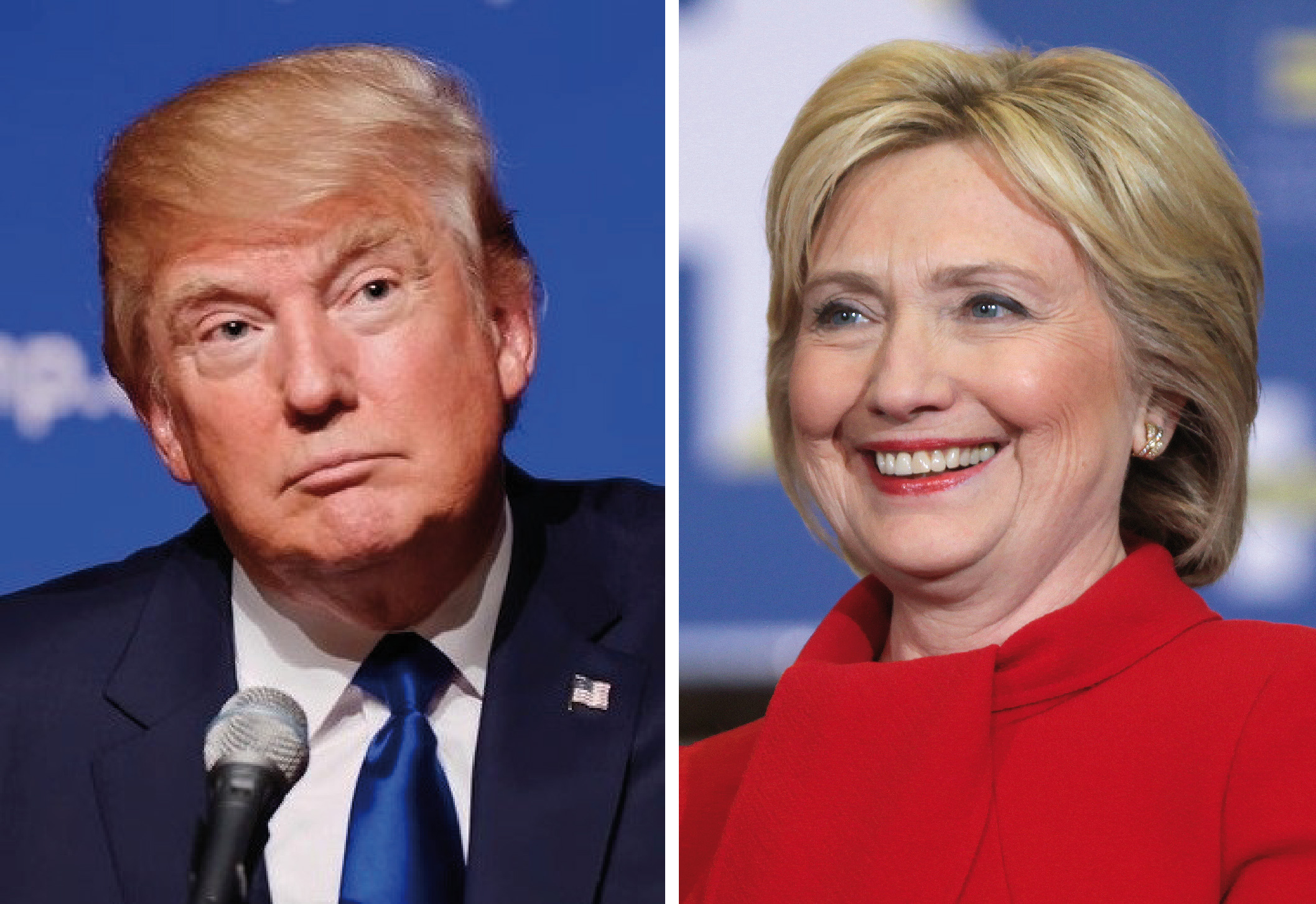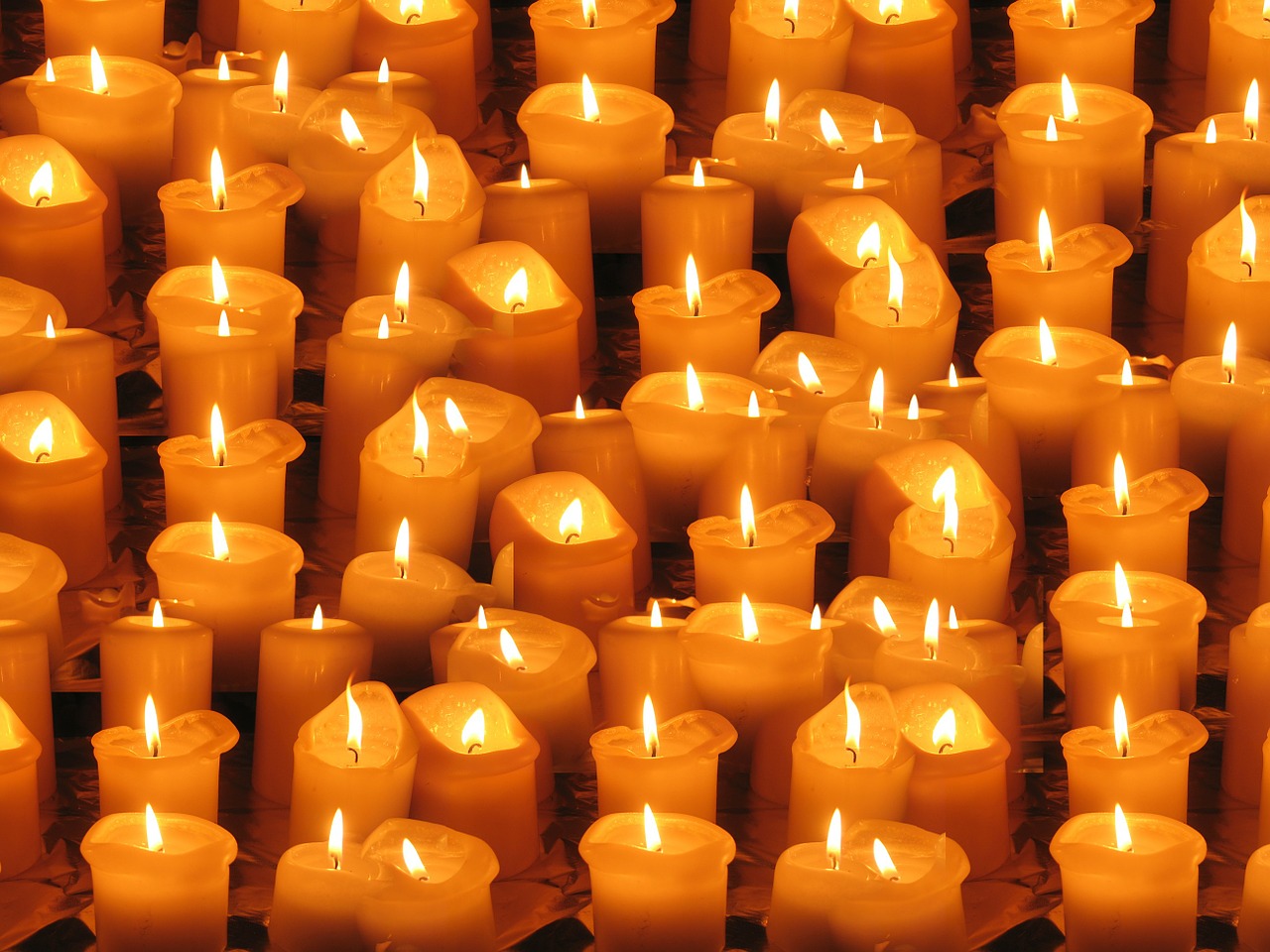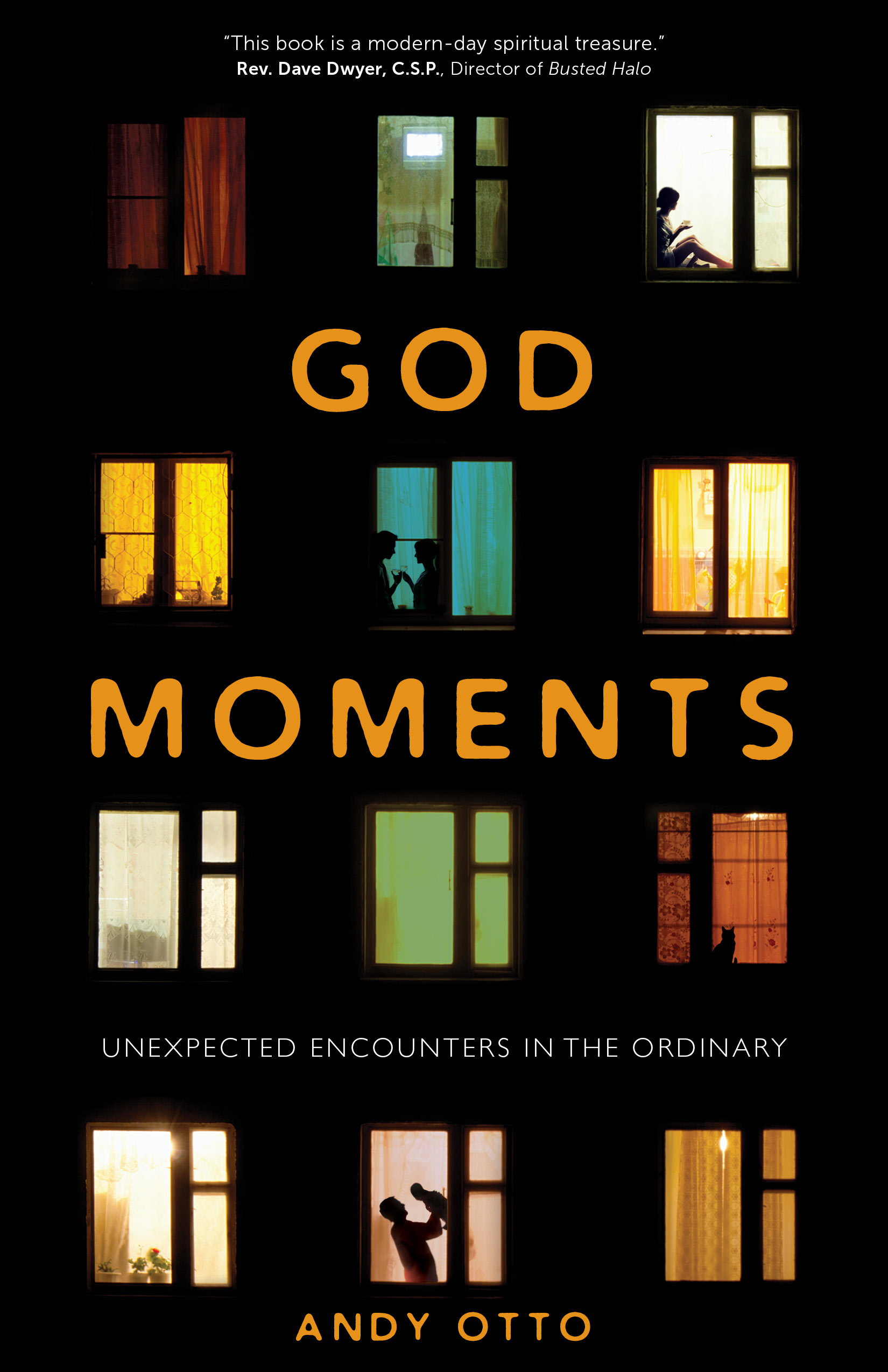 Each time a presidential election approaches in the United States many Catholics struggle with the question of who to vote for. Despite the bizarre circumstances of this year’s political choices, it does not make our decision-making as followers and friends of Christ any different. In the spirit of Ignatian discernment and decision-making I hope to offer you some guidance on how to approach your role in the political life as an intentional Catholic. It must first be said that our involvement in public life ought to extend beyond the presidential election. Each person has a responsibility to be just as intentional in their state and local elections, knowledge about ballot measures, even considering writing letters to their congressperson. But since the presidential election gets so much attention this is where we stand right now.
Each time a presidential election approaches in the United States many Catholics struggle with the question of who to vote for. Despite the bizarre circumstances of this year’s political choices, it does not make our decision-making as followers and friends of Christ any different. In the spirit of Ignatian discernment and decision-making I hope to offer you some guidance on how to approach your role in the political life as an intentional Catholic. It must first be said that our involvement in public life ought to extend beyond the presidential election. Each person has a responsibility to be just as intentional in their state and local elections, knowledge about ballot measures, even considering writing letters to their congressperson. But since the presidential election gets so much attention this is where we stand right now.
Many questions arise: Can I vote for a Democrat? Can I vote for someone who is not consistently pro-life? Isn’t abortion the primary issue I must base my vote on?
Since our bishops are supposed to share with us the wisdom of Catholic teaching, I will reference their quadrennial document, Forming Consciences for Faithful Citizenship. The document is founded on Catholic social teaching, especially these four core principles: the dignity of the human person, subsidiarity, the common good, and solidarity. Let’s look at what the bishops actually say before we engage the Ignatian tradition of discernment.
Let’s answer the first question on many people’s minds. How do the pro-life issues play into my vote? The bishops’ document does speak of “intrinsically evil acts” that violate the dignity of the human person, which must never be supported. These include not only abortion or the death penalty but human cloning, genocide, and torture. They even extend this to racism, subhuman living conditions, and exploiting workers. “The right to life implies and is linked to other human rights—to the basic goods that every human person needs to live and thrive.” The bishops make it a point to quote John Paul II who said that we must be aware that no single government official may be able to overturn a pro-abortion law, but “he or she may work to improve protection for unborn human life.” This is an important consideration. What does it mean when a candidate claims to be pro-life? What holistically are they going to do to prevent or reduce abortions? How does their pro-life ethic extend to other issues like care for the elderly and dying, torture, discrimination, war, and nuclear armament?
Single issue voting?
The bishops are clear: “As Catholics we are not single-issue voters.” The Catholic social ethic “does not treat all issues as morally equivalent nor does it reduce Catholic teaching to one or two issues. It anchors the Catholic commitment to defend human life, from conception until natural death, in the fundamental moral obligation to respect the dignity of every person as a child of God.” The Congregation for the Doctrine of the Faith tells us we cannot isolate one element of Catholic social teaching to the detriment of the entire teaching. That being said, it’s clear no candidate fully aligns with the whole of Catholic teaching. One person may be opposed to abortion but support the death penalty. Another might be in favour of fair wages and living conditions for workers but is not quick to condemn racial discrimination. As Catholics, our faith transcends politics and parties.
Some have criticised the bishops’ Forming Consciences document as telling people to vote Republican without explicitly saying it. The document actually is quite holistic in its approach of how Catholics should form their consciences. It emphasises the whole of Catholic moral principles with a particular focus on “intrinsically evil acts”, which it does not reduce to abortion.
So can a Catholic vote for a Democrat? What about someone who supports abortion rights? Keep in mind that quite often all of the candidates hold a position that supports an intrinsic evil like euthanasia, nuclear arms, abortion, torture, racism, or the death penalty. That is our reality in 2016. In this case the bishops present two options:
- Choose not to vote for any candidate.
- “Vote for the candidate deemed less likely to advance such a morally flawed position and more likely to pursue other authentic human goods.”
When one chooses to vote for a candidate who holds a morally evil position one cannot vote with the intention of supporting that position. In other words, you can vote for a candidate who happens supports abortion rights only if you do not intend to support that position. Rather, your intention to vote for them would be because they are more likely to do more moral good in their political office, and wholly support the common good; not because you want to ignore the issue of abortion. Here is the bishops’ language:
- “A Catholic cannot vote for a candidate who favors a policy promoting an intrinsically evil act … if the voter’s intent is to support that position.”
- “At the same time, a voter should not use a candidate’s opposition to an intrinsic evil to justify indifference or inattentiveness to other important moral issues involving human life and dignity.”
Ignatian Discernment
The Ignatian spiritual tradition can offer some advice on how to discern our decision. Our intent should not be to place the entirety of our country’s moral progress on a single governmental official. That would be foolish thinking. We ought to think more holistically, remembering that as individuals we also have responsibilities to the state, like civic engagement, letter writing, protesting, etc.
In Ignatian discernment the first step would be to ask the Holy Spirit to help guide you toward making the best choice you can. Acknowledge that no candidate is perfect.
The second step is centred in the head. Be objective. Make a list of the candidates and their positions and how they align with Catholic social teaching. How do you weigh the importance of the issues? Ask yourself how much the candidate would be able to influence the various issues. Also consider the ways you might contribute to moral good in society. How would you get involved in positive social change? Are there state or local measures you should support?
The next step would be to consider your heart. This is more subjective. In other words, what are your emotions and feelings that surround the various candidates? Do you feel you trust one more than the other? What’s their heart like? Do they seem sincere in their desire to help the common good of all people or just a few? Do they seem to care about human dignity? Does your gut point you toward one person more than another?
When November 8 comes, make the best choice you can, weighing all parts of your discernment, ultimately trusting God’s goodness.
Read the bishops’ entire document Forming Consciences for Faithful Citizenship.
Here’s a one-pager on Catholic social teaching.
Listen to an audio version of this post…









USCCB made a deal with the devil when it aligned itself with the Republican Party over abortion. Very disappointed in Mr. Otto’s tepid critique of the USCCB’s abject failure of leadership.
I am “Catholic” and a democrat. I vote democrat. Why? Because I believe in freedom for all people, rights for all people — unlike the Catholic church. I believe that human life is sacred but that women should be left to chose what they will do with their bodies. My beliefs are not to be imposed on other people who are atheists, Muslims or other religions. We cannot force Catholicism on everyone. This is the US. If we made abortion illegal, women would still have them — UNSAFELY. So what’s better? What’s more, is that there are children ALREADY here that need to be taken care of…NOW. Their parents need food stamps and assistance in taking care of them. They are innocent and they suffer. So, if you believe in being pro-life, you must support the born. Not just the unborn. And if someone is diagnosed with a terminal illness and is going to suffer a horrible death and they want to die before that happens, that is THEIR CHOICE and nobody should shame them or make that choice for them. If you’re not in their shoes, you should remain silent and pray you never will have to be in their shoes. LGBTQ people are treated horribly and that needs to change. Are republicans usually interested in these issues to HELP and aid and make things better? NO. They make it worse. So, if you ask me…voting democratic or maybe independent is probably most Christian. Most like Jesus. If I voted according to what the church teaches, I would be vote for homophobia, bigotry, division and dictatorship and that is not what this country is about. In the end, nobody should be pushing their religious beliefs on everyone else.
Oh yes, Stephen. Jesus didn’t care about much except feeding the hungry, healing the sick, forgiving the errant – and heck yes, raising the dead! Not to mention accepting the outsider. We can do no less.
Congratulations! So well done. Keep up the good work, Charlotte Ahern
>
I think it is a crying shame that all we have to choose from is the lesser of two evils. Whatever that is. The world is laughing. I am so sad.
I’ve long-since come to the conclusion that, in this election, to vote for either of the two major-party candidates is formal cooperation with evil, not through positive participation, but through the fact that such a vote will condone the evil acts enabled by that candidate. And yes, this applies equally to both.
I think more discussion like this one need to take place in our Catholic communities. I think one of the greatest failingis of Church leaders is the lack of teaching on developing a conscience. Many people do not understand what it means much less how to develop one. I often wonder if this isn’t the same motivation on the part of leaders as when Catholics were discouraged from reading scripture. I also feel that the role of the Church in American today should be in bringing us back together. The Catholic Church could be an example to our society. PEW research suggests that we are becoming two nations split along party lines. We don’t frequent the same places, live in the same neighborhoods, go the same schools. But as Catholic we often do sit in the same pews on Sunday! What a gift we could be to the world if we dared to understand one another and seek common ground.
As a medical professional who works in women’s health, I have seen first hand the horrific affects of back-alley abortion, obtained in places where although technically legal, abortions were inaccessible or unaffordable. There are awful affects on the mother’s health and also the health of her future children (increased rate of preterm birth).
As Stephen said above, women are going to have abortions. Period. Always have, always will. I hope our elected officials put their efforts into supporting other humanitarian endeavors that put people in positions where they are able to comfortably raise children, rather than attempting to impose our personal ideas of utopia on reality.
I am a pro-choice Catholic. Just like we (think) we can vote for “change” in our political system, I believe that if more Catholics voice support for reproductive choice, eventually the Church will alter its stance on abortion.